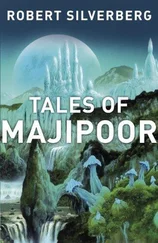Robert Silverberg - Born with the Dead
Здесь есть возможность читать онлайн «Robert Silverberg - Born with the Dead» весь текст электронной книги совершенно бесплатно (целиком полную версию без сокращений). В некоторых случаях можно слушать аудио, скачать через торрент в формате fb2 и присутствует краткое содержание. Год выпуска: 2009, ISBN: 2009, Издательство: Subterranean Press, Жанр: Фантастика и фэнтези, на английском языке. Описание произведения, (предисловие) а так же отзывы посетителей доступны на портале библиотеки ЛибКат.
- Название:Born with the Dead
- Автор:
- Издательство:Subterranean Press
- Жанр:
- Год:2009
- ISBN:978-1-59606-212-2
- Рейтинг книги:5 / 5. Голосов: 1
-
Избранное:Добавить в избранное
- Отзывы:
-
Ваша оценка:
- 100
- 1
- 2
- 3
- 4
- 5
Born with the Dead: краткое содержание, описание и аннотация
Предлагаем к чтению аннотацию, описание, краткое содержание или предисловие (зависит от того, что написал сам автор книги «Born with the Dead»). Если вы не нашли необходимую информацию о книге — напишите в комментариях, мы постараемся отыскать её.
Born with the Dead — читать онлайн бесплатно полную книгу (весь текст) целиком
Ниже представлен текст книги, разбитый по страницам. Система сохранения места последней прочитанной страницы, позволяет с удобством читать онлайн бесплатно книгу «Born with the Dead», без необходимости каждый раз заново искать на чём Вы остановились. Поставьте закладку, и сможете в любой момент перейти на страницу, на которой закончили чтение.
Интервал:
Закладка:
Sybille glances at Zacharias; he nods; they join the line. She goes down into the pit, gouges a lump of moist black clayey soil from its side, takes it to the growing mound. Back for another, back for another. The mound rises rapidly, two feet above ground level now, three, four, a swelling circular blister, its outlines governed by the unchanging positions of the four priests, its tapering contours formed by the tamping of scores of bare feet. Yes, Sybille thinks, this is a valid way of celebrating death, this is a fitting rite. Sweat runs down her body, her clothes become stained and muddy, and still she runs to the earth-quarry, runs from there to the mound, runs to the quarry, runs to the mound, runs, runs, transfigured, ecstatic.
Then the spell breaks. Something goes wrong, she does not know what, and the mists clear, the sun dazzles her eyes, the priests and the mound-builders and the unfinished mound disappear. She and Zacharias are once again in the octagon, golf carts roaring past them on every side. Three children and their parents stand just a few feet from her, staring, staring, and a boy about ten years old points to Sybille and says in a voice that reverberates through half of Ohio, “Dad, what’s wrong with those people? Why do they look so weird?”
Mother gasps and cries, “Quiet, Tommy, don’t you have any manners?” Dad, looking furious, gives the boy a stinging blow across the face with the tips of his fingers, seizes him by the wrist, tugs him toward the other side of the park, the whole family following in their wake.
Sybille shivers convulsively. She turns away, clasping her hands to her betraying eyes. Zacharias embraces her. “It’s all right,” he says tenderly. “The boy didn’t know any better. It’s all right.”
“Take me away from here!”
“I want to show you—”
“Some other time. Take me away. To the motel. I don’t want to see anything. I don’t want anybody to see me.”
He takes her to the motel. For an hour she lies face down on the bed, racked by dry sobs. Several times she tells Zacharias she is unready for this tour, she wants to go back to the Cold Town, but he says nothing, simply strokes the tense muscles of her back, and after a while the mood passes. She turns to him and their eyes meet and he touches her and they make love in the fashion of the deads.
Three
Newness is renewal: ad hoc enim venit, ut renovemur in illo ; making it new again, as on the first day; herrlich wie am ersten Tag . Reformation, or renaissance; rebirth. Life is Phoenix-like, always being born again out of its own death. The true nature of life is resurrection; all life is life after death, a second life, reincarnation. Totus hic ordo revolubilis testatio est resurrectionis mortuorum . The universal pattern of recurrence bears witness to the resurrection of the dead.
Norman O. Brown: Love’s Body“The rains shall be commencing shortly, gentleman and lady,” the taxi driver said, speeding along the narrow highway to Zanzibar Town. He had been chattering steadily, wholly unafraid of his passengers. He must not know what we are, Sybille decided. “Perhaps in a week or two they begin. These shall be the long rains. The short rains come in the last of November and December:”
“Yes, I know,” Sybille said.
“Ah, you have been to Zanzibar before?”
“In a sense,” she replied. In a sense she had been to Zanzibar many times, and how calmly she was taking it, now that the true Zanzibar was beginning to superimpose itself on the template in her mind, on that dream-Zanzibar she had carried about so long! She took everything calmly now: nothing excited her, nothing aroused her. In her former life the delay at the airport would have driven her into a fury: a ten-minute flight, and then to be trapped on the runway twice as long! But she had remained tranquil throughout it all, sitting almost immobile, listening vaguely to what Zacharias was saying and occasionally replying as if sending messages from some other planet. And now Zanzibar, so placidly accepted. In the old days she had felt a sort of paradoxical amazement whenever some landmark familiar from childhood geography lessons or the movies or travel posters—the Grand Canyon, the Manhattan skyline, Taos Pueblo—turned out in reality to look exactly as she imagined it would; but now here was Zanzibar, unfolding predictably and unsurprisingly before her, and she observed it with a camera’s cool eye, unmoved, unresponsive.
The soft, steamy air was heavy with a burden of perfumes, not only the expected pungent scent of cloves but also creamier fragrances which perhaps were those of hibiscus, frangipani, jacaranda, bougainvillaea, penetrating the cab’s open window like probing tendrils. The imminence of the long rains was a tangible pressure, a presence, a heaviness in the atmosphere: at any moment a curtain might be drawn aside and the torrents would start. The highway was lined by two shaggy green walls of palms broken by tin-roofed shacks; behind the palms were mysterious dark groves, dense and alien. Along the edge of the road was the usual tropical array of obstacles: chickens, goats, naked children, old women with shrunken, toothless faces, all wandering around untroubled by the taxi’s encroachment on their right-of-way. On through the rolling flatlands the cab sped, out onto the peninsula on which Zanzibar Town sits. The temperature seemed to be rising perceptibly minute by minute; a fist of humid heat was clamping tight over the island. “Here is the waterfront, gentleman and lady,” the driver said. His voice was an intrusive hoarse purr, patronizing, disturbing. The sand was glaringly white, the water a dazzling glassy blue; a couple of dhows moved sleepily across the mouth of the harbor, their lateen sails bellying slightly as the gentle sea breeze caught them. “On this side, please—” An enormous white wooden building, four stories high, a wedding cake of long verandahs and cast-iron railings, topped by a vast cupola. Sybille, recognizing it, anticipated the driver’s spiel, hearing it like a subliminal pre-echo: “Beit al-Ajaib, the House of Wonders, former government house. Here the Sultan was often make great banquets, here the famous of all Africa came homaging. No longer in use. Next door the old Sultan’s Palace, now Palace of People. You wish to go in House of Wonders? Is open: we stop, I take you now.”
“Another time,” Sybille said faintly. “We’ll be here awhile.”
“You not here just a day like most?”
“No, a week or more. I’ve come to study the history of your island. I’ll surely visit the Bett al-Ajaib. But not today.”
“Not today, no. Very well: you call me, I take you anywhere. I am Ibuni.” He gave her a gallant toothy grin over his shoulder and swung the cab inland with a ferocious lurch, into the labyrinth of winding streets and narrow alleys that was Stonetown, the ancient Arab quarter.
All was silent here. The massive white stone buildings presented blank faces to the streets. The windows, mere slits, were shuttered. Most doors—the famous paneled doors of Stonetown, richly carved, studded with brass, cunningly inlaid, each door an ornate Islamic masterpiece—were closed and seemed to be locked. The shops looked shabby, and the small display windows were speckled with dust. Most of the signs were so faded Sybille could barely make them out:
PREMCHAND’S EMPORIUM
MONJI’S CURIOS
ABDULLAH’S BROTHERHOOD STORE
MOTILAL’S BAZAAR
The Arabs were long since gone from Zanzibar. So were most of the Indians, though they were said to be creeping back. Occasionally, as it pursued its intricate course through the maze of Stonetown, the taxi passed elongated black limousines, probably of Russian or Chinese make, chauffeur-driven, occupied by dignified self-contained dark-skinned men in white robes. Legislators, so she supposed them to be, en route to meetings of state. There were no other vehicles in sight, and no pedestrians except for a few women, robed entirely in black, hurrying on solitary errands. Stonetown had none of the vitality of the countryside; it was a place of ghosts, she thought, a fitting place for vacationing deads. She glanced at Zacharias, who nodded and smiled, a quick quirky smile that acknowledged her perception and told her that he too had had it. Communication was swift among the deads and the obvious rarely needed voicing.
Читать дальшеИнтервал:
Закладка:
Похожие книги на «Born with the Dead»
Представляем Вашему вниманию похожие книги на «Born with the Dead» списком для выбора. Мы отобрали схожую по названию и смыслу литературу в надежде предоставить читателям больше вариантов отыскать новые, интересные, ещё непрочитанные произведения.
Обсуждение, отзывы о книге «Born with the Dead» и просто собственные мнения читателей. Оставьте ваши комментарии, напишите, что Вы думаете о произведении, его смысле или главных героях. Укажите что конкретно понравилось, а что нет, и почему Вы так считаете.












